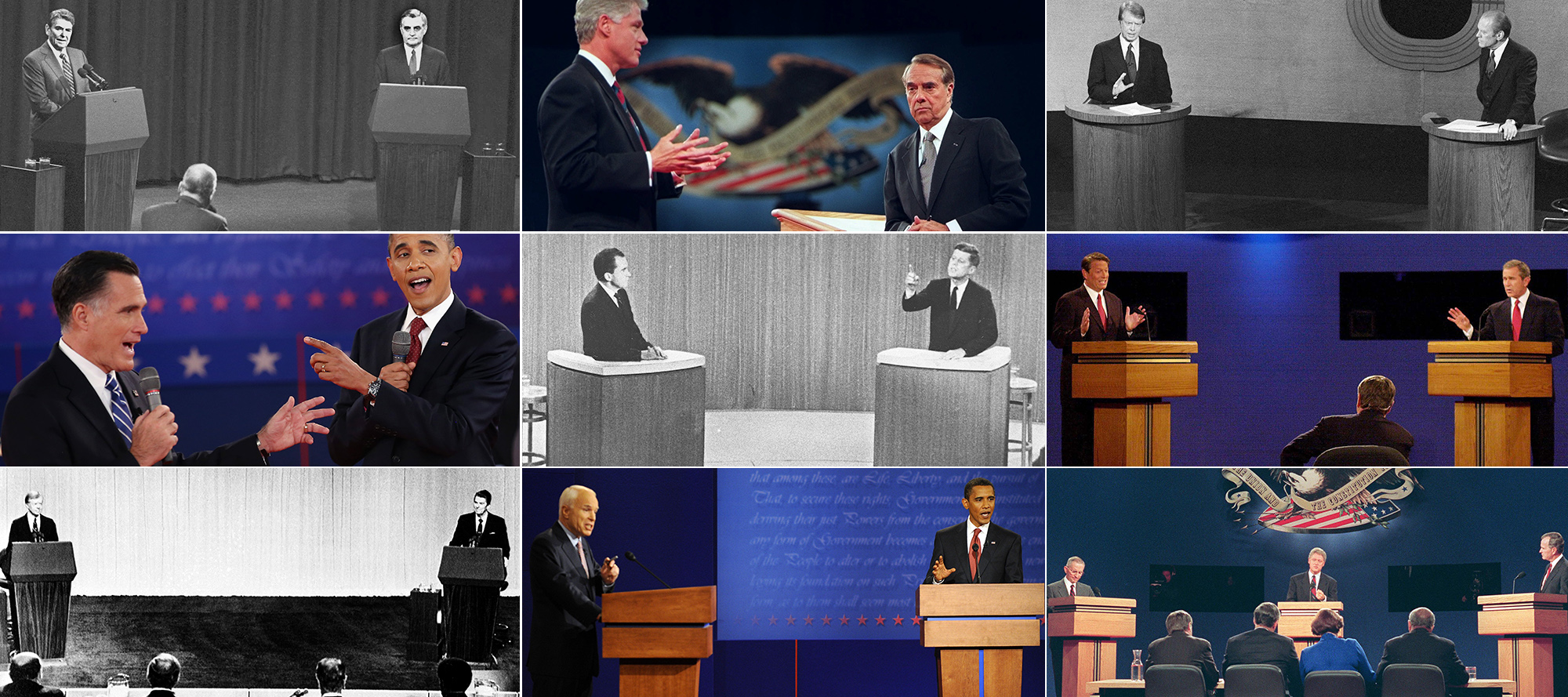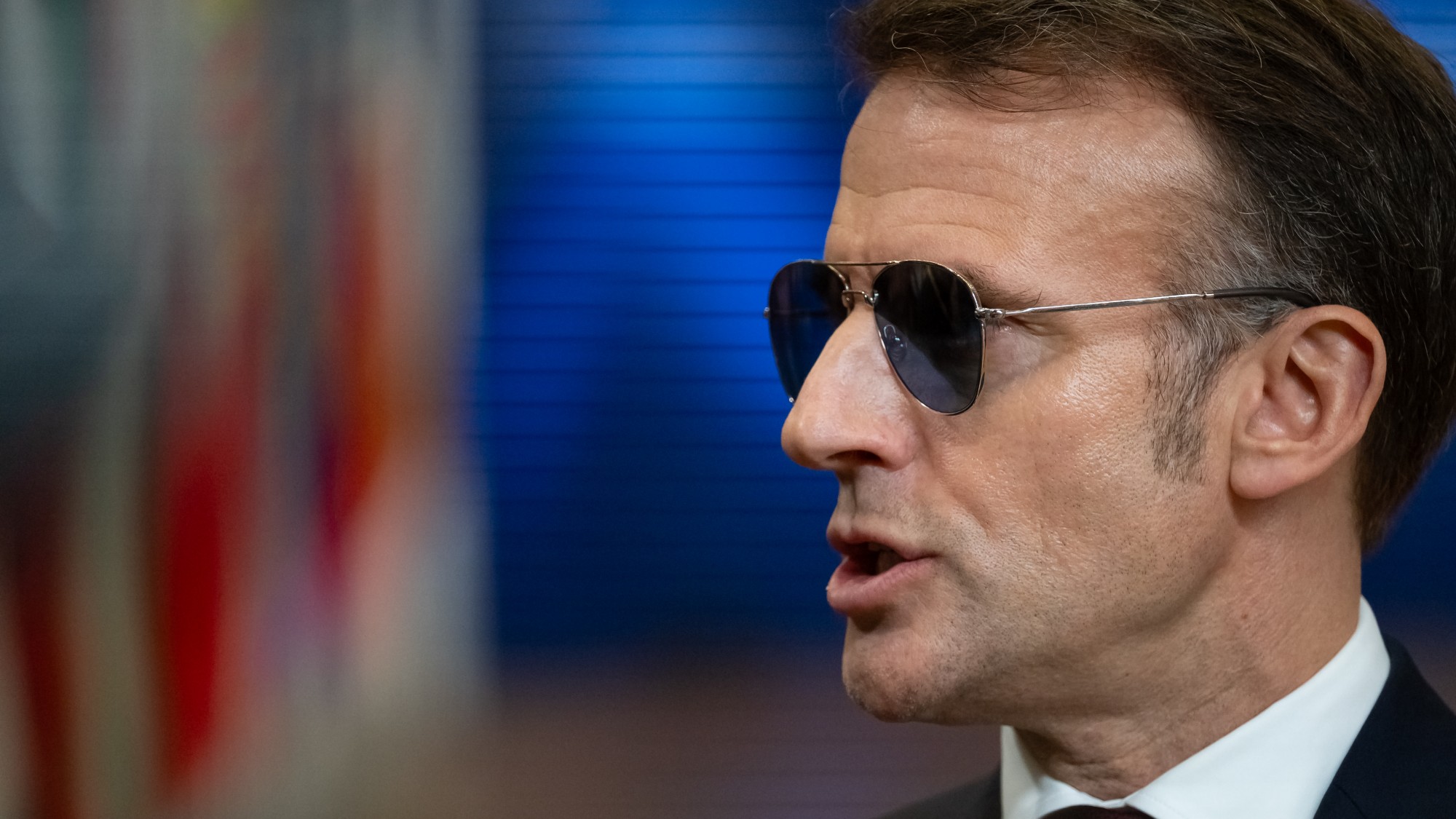Forget everything you know about debates. Trump vs. Clinton will be different.
This time it might actually matter


Every four years, as excitement about the presidential debates begins to ramp up, some wet blanket political scientists, communication scholars, or data journalists will emerge to rain on everyone's parade. They'll inform us that for all the hype, debates almost never have a meaningful impact on the outcome of the race. This is the basic conclusion of years of research on this topic: While there are some identifiable effects on things like knowledge, voters' agendas, or perceptions of certain traits of the candidates, what you don't see are large swings in the polls — at least not lasting swings.
If you remember the last election, this might sound familiar. In the first debate between Barack Obama and Mitt Romney, the incumbent was dry and dull, droning on in meandering answers that lacked any kind of zip or zazz, while the challenger was fired up and aggressive. But then Obama seemed to learn his lesson and came back for the two following debates looking far more focused and articulating his ideas (and his critiques of Romney) much more clearly. So what happened to the polls? If you look at the averages, before the debates began Obama led by around 4 points; during and after the debates his lead shrank to nearly nothing, but then once they were over Obama went back up by around 2 points, and he ended up winning by 4 points, right where polls had him before the debates began. Other elections have followed a similar pattern: some temporary movement, possibly in reaction to what happened during the debates, followed by a return to the status quo ante.
But what about all those dramatic moments we remember, from "There you go again" to "You're no Jack Kennedy" to George H.W. Bush checking his watch to Al Gore sighing? Well, they were dramatic, and they gave us a lot to talk about afterward. But they didn't necessarily shift voters' choices, at least not in huge numbers.
The Week
Escape your echo chamber. Get the facts behind the news, plus analysis from multiple perspectives.

Sign up for The Week's Free Newsletters
From our morning news briefing to a weekly Good News Newsletter, get the best of The Week delivered directly to your inbox.
From our morning news briefing to a weekly Good News Newsletter, get the best of The Week delivered directly to your inbox.
Will it be different this year? We're talking about 2016, a Grand Guignol of a campaign, where nothing is certain and history is meaningless. After all, nearly everyone thought the idea of a repellent bloviator like Donald Trump becoming the nominee of one of our two great political parties was utterly ludicrous, right up until it actually happened.
So yes, there are some reasons to think there could be a real shift in the race as a result of the debates.
The format holds some advantages for Hillary Clinton, who knows a great deal about policy and can give answers on almost any topic that will make her sound informed and experienced — which happens to be her area of greatest advantage over Trump.
He has never debated anyone one-on-one before, and the idea that he could answer questions for 45 minutes of a 90 minute debate without saying something shocking and/or repugnant seems unlikely. Trump's impulse when speaking off the cuff is always to play right to the people who are already firmly behind him, which means he could damage himself with the moderate voters he needs to win over if he's to get to a majority. And according to numerous reports, he's barely preparing, doing no mock debates and talking only to friendly news organizations in the days leading up to Monday night's event.
A free daily email with the biggest news stories of the day – and the best features from TheWeek.com
Both candidates also have, at least in theory, the opportunity to show a huge audience — predicted by some to be over 100 million viewers — that they aren't what people have heard. Clinton has been subject to an enormous amount of negative news coverage revolving around things like emails and the Clinton Foundation, and this is an opportunity for her to show something different to voters. She may not be able to make you weep when she gives a pre-written speech, but she's at her best answering substantive questions and speaking extemporaneously. And as always, she'll be nothing if not prepared.
Trump, on the other hand, could offer viewers some reassurance that he isn't as much of a loose cannon as they think, if he can exercise the self-discipline to go through the entire debate without saying something crazy. After getting their most extended look at him, wavering voters could decide that he isn't as much of a lunatic as they thought.
Or not.
But either way, we shouldn't consider this first debate and the ones that follow a disappointment if they don't create a substantial movement in the polls. Nor does it matter who "won," a question that's ultimately irrelevant. What does matter is whether we learn anything new, whether we deepen our understanding of these two people (both the good and the bad), whether we get some better sense of how they think, what's important to them, and how they might actually act if they become president.
So when the debate is over, here's a suggestion: Every time you hear someone on TV talking about who won, just tune out. As soon as you see an interviewer put the microphone in the face of a campaign staffer or surrogate in the post-debate spin room, grab the remote and switch over to Inkmaster or Toddlers and Tiaras or pretty much anything but that. It won't enhance your understanding or offer an interesting perspective; quite the contrary, you'll grow dumber each second you listen to some hack explain how commanding and brilliant and heartwarming their candidate was.
And keep in mind that as imperfect as they are and for all the ways they could be improved, these debates are about the most substantive, extended look most voters will have of the two candidates before we actually select one of them to be the leader of the world's most important nation. So we'd all better pay attention.
Paul Waldman is a senior writer with The American Prospect magazine and a blogger for The Washington Post. His writing has appeared in dozens of newspapers, magazines, and web sites, and he is the author or co-author of four books on media and politics.
-
 Syria’s Islamic State problem
Syria’s Islamic State problemIn The Spotlight Fragile security in prison camps leads to escape of IS fighters
-
 Quiz of The Week: 17 – 23 January
Quiz of The Week: 17 – 23 JanuaryQuiz Have you been paying attention to The Week’s news?
-
 The Week Unwrapped: What can we learn from a tool-wielding cow?
The Week Unwrapped: What can we learn from a tool-wielding cow?Podcast Plus, have we reached ‘peak billionaire’? When should troops disobey their superiors?
-
 The billionaires’ wealth tax: a catastrophe for California?
The billionaires’ wealth tax: a catastrophe for California?Talking Point Peter Thiel and Larry Page preparing to change state residency
-
 Bari Weiss’ ‘60 Minutes’ scandal is about more than one report
Bari Weiss’ ‘60 Minutes’ scandal is about more than one reportIN THE SPOTLIGHT By blocking an approved segment on a controversial prison holding US deportees in El Salvador, the editor-in-chief of CBS News has become the main story
-
 Has Zohran Mamdani shown the Democrats how to win again?
Has Zohran Mamdani shown the Democrats how to win again?Today’s Big Question New York City mayoral election touted as victory for left-wing populists but moderate centrist wins elsewhere present more complex path for Democratic Party
-
 Millions turn out for anti-Trump ‘No Kings’ rallies
Millions turn out for anti-Trump ‘No Kings’ ralliesSpeed Read An estimated 7 million people participated, 2 million more than at the first ‘No Kings’ protest in June
-
 Ghislaine Maxwell: angling for a Trump pardon
Ghislaine Maxwell: angling for a Trump pardonTalking Point Convicted sex trafficker's testimony could shed new light on president's links to Jeffrey Epstein
-
 The last words and final moments of 40 presidents
The last words and final moments of 40 presidentsThe Explainer Some are eloquent quotes worthy of the holders of the highest office in the nation, and others... aren't
-
 The JFK files: the truth at last?
The JFK files: the truth at last?In The Spotlight More than 64,000 previously classified documents relating the 1963 assassination of John F. Kennedy have been released by the Trump administration
-
 'Seriously, not literally': how should the world take Donald Trump?
'Seriously, not literally': how should the world take Donald Trump?Today's big question White House rhetoric and reality look likely to become increasingly blurred
